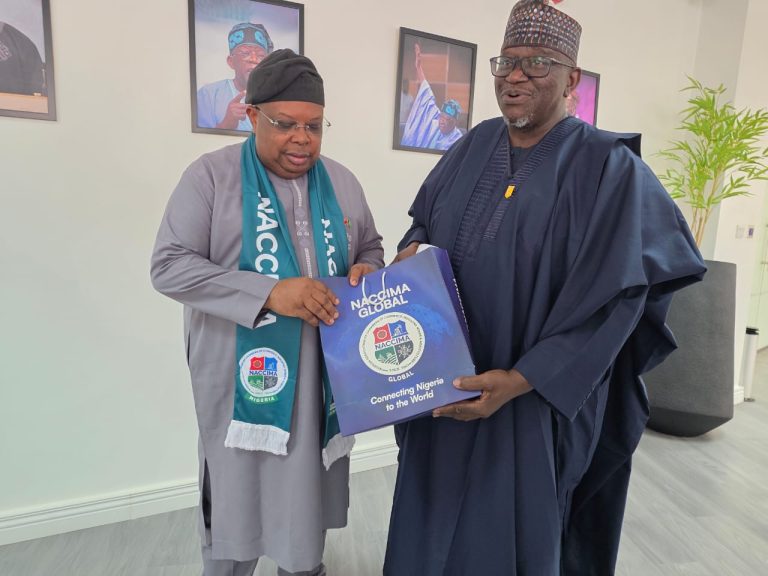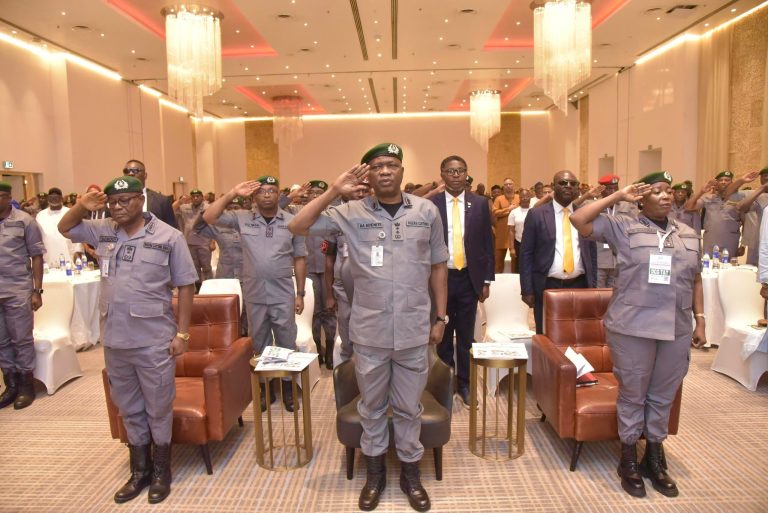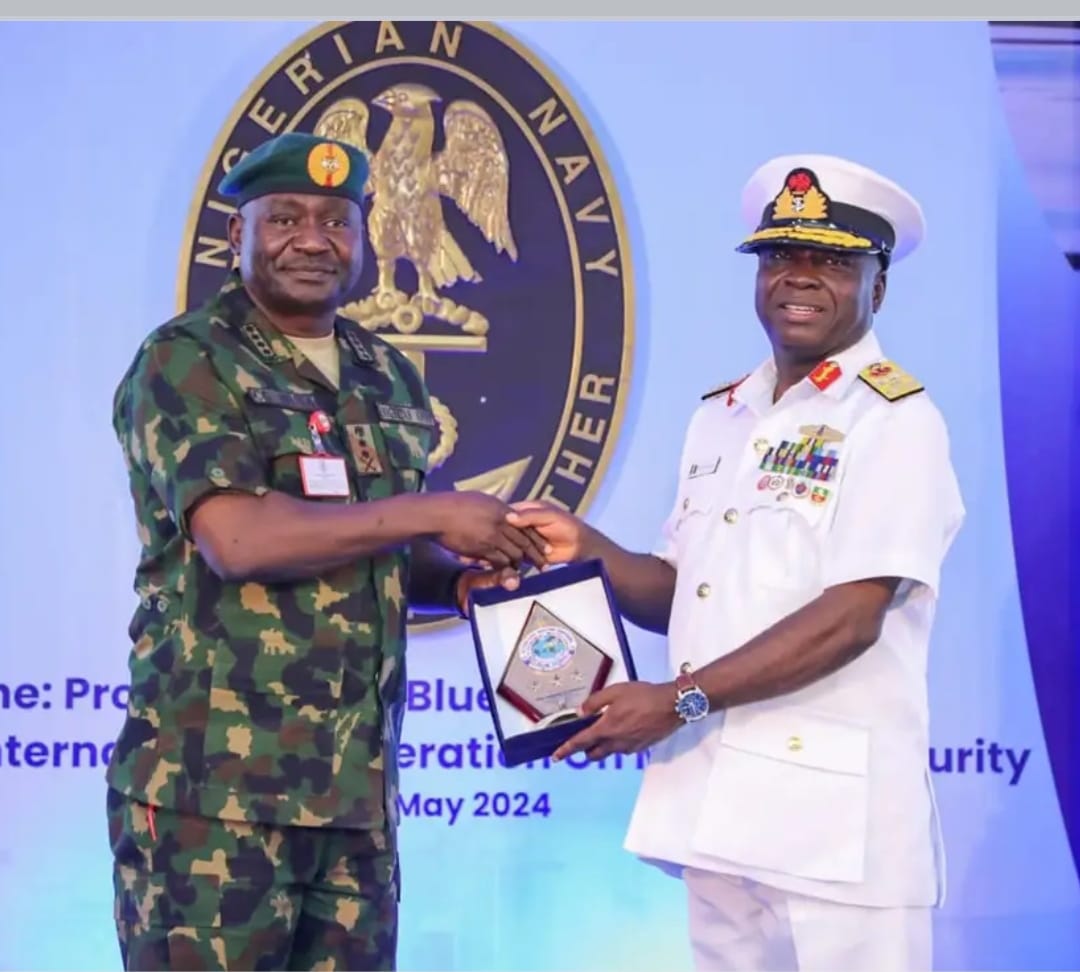
…AS DEFENCE CHIEF SEEKS COLLABORATION TO FIGHT MARITIME CRIMES
By Okosun Dennis
The Nigerian Navy, as part of its 68-anniversary celebration, has given positive insights on how to improve the Blue economy in Africa and dominate the maritime sector by suffocating maritime criminal gangs that impede smooth business prosperity.
At the closing ceremony of the International Maritime Conference on Friday, 31st May 2024, at the Admiralty Conference Centre, Naval Dockyard Limited, Victoria Island, Lagos, several resolutions were reached toward improving maritime governance and security in the African continent.
In a lecture delivered by Dr. Paul Adilikwu titled: “Leveraging Maritime Security Collaboration for Harnessing Blue Economy in Africa: Strategies and Mechanisms for Success” explained the mechanisms through which cooperation for maritime security would improve the Blue Economy in Africa.
In a communique at the end of the two-day conference signed by the Chief of Policy and Plans (CPPLANS), Nigerian Navy, Rear Admiral Joseph Akpan, the conference reached an agreement to sensitize respective governments on the need to: “Establish a combination of marine and maritime data to establish a mandatory baseline for the development of the Blue Economy; Initiate and drive the development of a comprehensive framework for governance and management of the Blue Economy in the Gulf of Guinea and Africa as well as
Facilitate a Whole of Government Approach to developing Africa’s Blue Economy through regular meetings, workshops, and joint exercises to enhance coordination, collaboration, and communication with all relevant stakeholders.
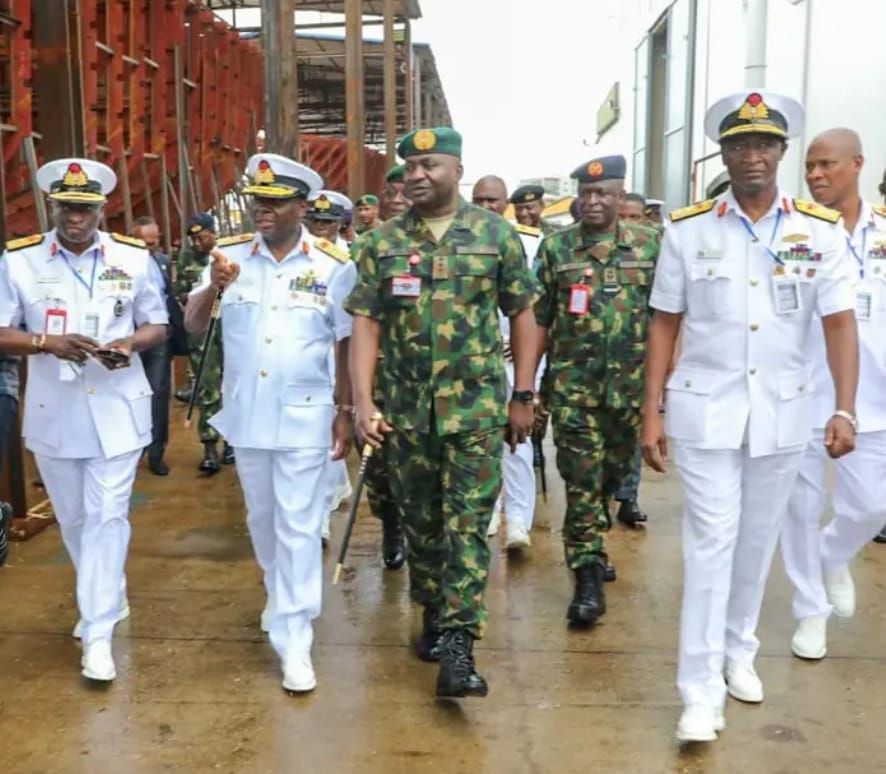
Also, the conference seeks to “Develop funding mechanism to encourage indigenous shipping and infrastructural development; Facilitate the establishment of special funding such as the Maritime Security Trust Fund to fund maritime security operations for member states; Foster public-private partnerships (PPPs) involving governments, maritime industry stakeholders, shipping companies, port operators, and security firms to enhance maritime security capabilities and promote the Blue Economy.
Among other pertinent issues the communique addressed include “Develop human resource capacity in the Blue Economy in areas such as oceanographic research, shipbuilding, and maritime security; Encourage joint production of naval hardware especially ships and boats to minimize cost and promote uniformity in manufacture or acquisition of operational equipment towards enhancing interoperability; and to Seek the participation of maritime security forces at the planning stages of major investments projects in the Blue Economy.
In addition, “Encourage regular meetings between the political and military strategic leadership of member states; Improve and promote the welfare and socio-economic well-being of coastal communities to mitigate maritime insecurity towards developing the Blue Economy.”
However, it was also disclosed in the communique that Heads of Navies/Coastguards agreed to: “Give impetus to the operationalization and sustainability of the Combined Maritime Task Force (CMTF) in the Gulf of Guinea; Set up regional maritime information fusion centers to foster collaboration and information sharing among participating countries, law enforcement agencies, navies, and maritime industry stakeholders.
Besides, “Enhance the capacity of fusion centers through technology, training, and technical assistance to improve their effectiveness in supporting maritime security operations; Drive regional concerted efforts to combat IUU fishing and other maritime crimes in the Gulf of Guinea; Sustain and improve training on maritime security for the Blue Economy by tailoring training and exercises to reflect the fundamentals of the Blue Economy; Sustain and improve on regional and international collaboration while also seeking international support as well as the Nigerian Navy should organise the International Maritime Conference and Fleet Review at her 70th Anniversary.
The Conference which was aimed at catalysing effective cooperation on maritime security across Africa as a key driver for unlocking the continent’s immense blue economy potential in line with the vision of the 2050 Africa Integrated Maritime Strategy (AIMS), was declared opened by the President and Commander-In-Chief of the Armed Forces, President Bola Ahmed Tinubu, who was represented by the Vice President Kashim Shettima on Thursday, 30th May 2024.
During the closing ceremony, in his remarks as the Special Guest of Honour, the Chief of Defence Staff (CDS) General Christopher Gwabin Musa calls for cooperation and collaboration to fight maritime Crimes; adding that despite the challenges of funding, non-state actors and different political lineage, we must partner and work together.
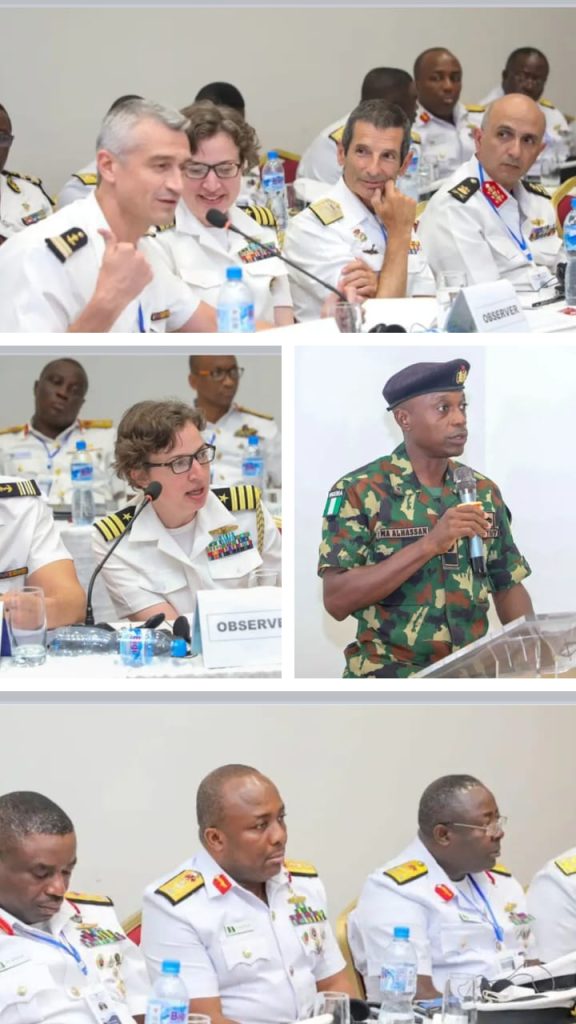
The theme: “Promoting the Blue Economy in Africa through International Cooperation on Maritime Security,” attracted about 400 delegates from 15 countries including African Heads of Navies and Coastguards, maritime security experts, academics, private sector representatives, international partners, and civil society organizations.
Others were representatives from the European Union (EU) and other allied friends of the Nigerian Navy like Benin Republic, Canada, Cameroun, China, Equatorial Guinea, Egypt, France, Ghana, Pakistan, Republic of Congo, Senegal, Spain, South Korea and the USA.
There was also representation from the International Maritime Organization (IMO), Interpol, as well as regional security and political organizations like the African Union (AU), Economic Community of West African States (ECOWAS), Economic Community of Central African States (ECCAS), Gulf of Guinea Commission (GGC) and the Inter-regional Coordination Centre (ICC) in Yaoundé, Cameroon.
Other participants include eminent retired and serving senior military officers, accomplished scholars on maritime security and blue economy, captains of industry, international maritime partners as well as relevant local and international maritime stakeholders.
During the conference, there was an IMC exhibition at the Naval Dockyard Limited Sports Complex among them was the Nigerian Navy Microfinance Bank Limited.
According to the Managing Director, Adamu Odoma “the mission is to use technologically-driven financial services to better the life of our customers and provide a good atmosphere for entrepreneurship and investment.”


